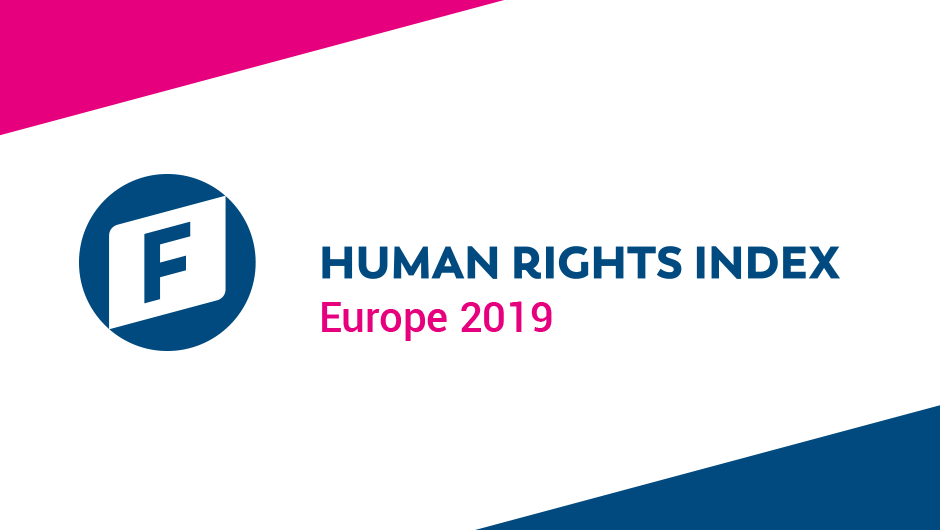Human Rights Index 2019 is out!

The new edition of the Human Rights Index is out!
The Human Rights Index (HRI), the newly crafted tool by the Freedom Barometer Index and FNF East and Southeast Europe, that gives an overview of the state of respect of human rights across 45 countries of Europe and Central Asia, is now published. This 2019 edition of the HRI covers almost a decade of data, from 2011 to 2019, enabling us to look at clear trends than just a single point in time.
Gender Equality
Furthermore, the HRI 2019 also highlights the topic of gender equality as an important issue, through interviews with Rosemarie Fike (Texas Christian University and Fraser Institute) on the Gender Disparity Index; Tamara Dancheva (former Liberal International) on the Women in Political Parties Index; as well as interviews with alumni of the European Women’s Academy (EWA): Camelia Crisan (Romania), Mane Tandilyan (Armenia) and Marijana Puljak (Croatia).
Download the Human Rights Index 2019 here!
-
Human Rights Index 2019
Nordics and Western Europe on the Top
Nordic countries top the list of the HRI, as Iceland, Finland and Sweden are the top three countries. But these are closely followed by Switzerland and Austria, and then by Norway, Ireland, Denmark, Netherlands and Slovenia. At the same time, Russia, Tajikistan and Turkey are at the bottom of the list.
Personal Safety
Personal safety continues to improve across the region – human trafficking and other heavy violations of human rights abuse are mostly dealt with by the state apparatus, while heavy crime rates are also decreasing. However, there are many concerns left in some of the regional, especially bearing in mind the refugee and migration flows.
Access to Education
Access to education is also getting better. The gap between boys and girls in their school access is mostly eliminated, since now almost all children of school age attend school regularly. The mean year of schooling is also slowly increasing, as well as the quality of education offered.
Tolerance and Inclusion
Tolerance and inclusion remain mostly stable in most countries, with some positive steps regarding gender equality and attitude towards the LGBT community, whose legal rights are getting recognized in more countries as the time goes by.
Personal Rights
Although personal rights remain stable across the continent, this may not be good news. It means that the achieved level of rights is not decreased in countries with high score, but also that it is not increased in those with low score. In some countries, such as Turkey, Russia and Ukraine there are worrying trends regarding their development.
Download the Human Rights Index 2019 here!
Find out more on measuring freedom and human rights from the comparative index Freedom Barometer, published by Friedrich Naumann Foundation for Freedom for East and Southeast Europe: http://freedombarometer.org/ The Human Rights Index score is used to calculate one of the indicators of the Freedom Barometer index- the protection of human rights in the rule of law category.
Check out some of the country scorecards of the Human Rights Index for 2019 below: